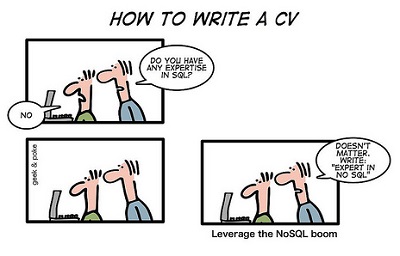 by Angela Guess
by Angela Guess
Jim Scott recently put together a list of four “game-changing” use cases for NoSQL databases in Smart Data Collective. He begins with financial services: “When you picture a trading firm or hedge fund, you might see a Gordon Gecko clone, clutching multiple phones, hunched over a Bloomberg terminal, barking orders to buy or sell. But in an increasing number of firms, the actual trading is carried out by sophisticated computer programs instead of human beings. Algorithmic trading is proving that computers can be more effective at picking stocks than human beings. A number of books, such as A Random Walk on Wall Street, urge people to invest in ETFs rather than playing the stock market themselves. NoSQL’s flexibility in dealing with non-tabular data really shines. Stock trades are linear, with wide variations in prices—and any program needs a lot of data to make good decisions. A conventional relational database might be too slow for a program that needs to make important financial decisions quickly.”
Scott also discusses building customer profiles: “If you’re tired from a long day of stock trading, environmental monitoring, and cell network monitoring, you might be tempted to kick back and relax with a bowl of popcorn and your favorite streaming video service. Even then, there could be a NoSQL database at work. To keep you paying your hard-earned money for the subscription fees, streaming services want to make watching as frictionless as possible. That means they don’t want to keep you searching for something you might want to watch, but to suggest something it thinks you’ll like. A service like Netflix has a lot of data on its customers’ habits. They probably need a large database storing data collected over a long period of time. Sounds like a job for a NoSQL database. This is the kind of operation that would be unwieldy on an RDBMS but is well-suited to NoSQL.”
photo credit: Flickr/ sramana9